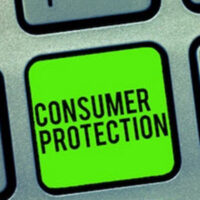IRS Issues Official Warning: Watch Out for Coronavirus Fraud and Scams

The COVID-19 (coronavirus) pandemic and the related shutdowns have put an enormous amount of financial pressure on individuals and businesses. The federal government is rolling out a variety of programs to provide relief and to support the economy. Unfortunately, there is already evidence that fraudsters and scammers are preparing to take advantage of this tragic situation.
On April 2nd, 2020, the Internal Revenue Service (IRS) officially warned all taxpayers to watch out for coronavirus-related scams. Below, our West Palm Beach business and consumer fraud lawyers offer four tips to help you avoid these fraud scams and we explain the steps you should take if you or your loved one was defrauded.
Coronavirus Stimulus Fraud: Four Tips from the IRS
Under the CARES Act, many taxpayers are eligible for a $1,200 direct payment ($2,400 for a family). In total, more than $250 billion is being issued in financial payments to taxpayers. Unfortunately, the IRS believes that fraudsters are targeting these payments. Here are four tips from the agency to avoid scams:
- Recognize that scammers may use the terms “Stimulus” in correspondence. The agency cautions that the real term is ‘Economic Impact Payment. Watch for unofficial language. It indicates a possible scam.
- The IRS will never ask you to sign away any portion of your payment to get access to more money. Do not authorize a third party to take your payment. The agency expects scammers to make false promises of faster checks.
- You will never be asked to clarify your personal information or bank account information by phone, email, text message, or social media message. If someone reaches out to you asking for these, be extremely careful.
- Watch for “bogus” checks that offer an odd amount of cash. These checks may ask you to call a number or put information into a website to cash them. If you receive one of these, it is likely a phishing scam to steal your identity.
What to Do If You Were Defrauded in a Coronavirus Scam
Fraudsters and scam artists are relentless. Even if you do almost everything right, you could still be the victim of business or consumer fraud. It should never be a source of shame. Take immediate action to protect your rights and get justice. Here are four steps to take if you believe that you or your loved one was victimized in a coronavirus-related fraud scheme:
- Stop all ongoing/future payments. If they have access to your bank account details or credit card information, make changes.
- Document everything. The more information that you have regarding the fraud, the easier it will be to take action.
- Report the fraud. File a complaint with state or federal authorities.
- Get professional legal help. A consumer fraud attorney can help you understand your options for recovering compensation.
Call Our Florida Consumer Fraud Lawyers for Help
At Pike & Lustig, LLP, our Florida fraud attorneys are skilled, results-driven advocates for our clients. If you or your loved one was the victim of a coronavirus-related scam, we are here to help. Call us now for a confidential consultation. With office locations in West Palm Beach, Wellington and Miami, we handle consumer fraud cases throughout Florida.
Resource:
irs.gov/newsroom/irs-issues-warning-about-coronavirus-related-scams-watch-out-for-schemes-tied-to-economic-impact-payments
